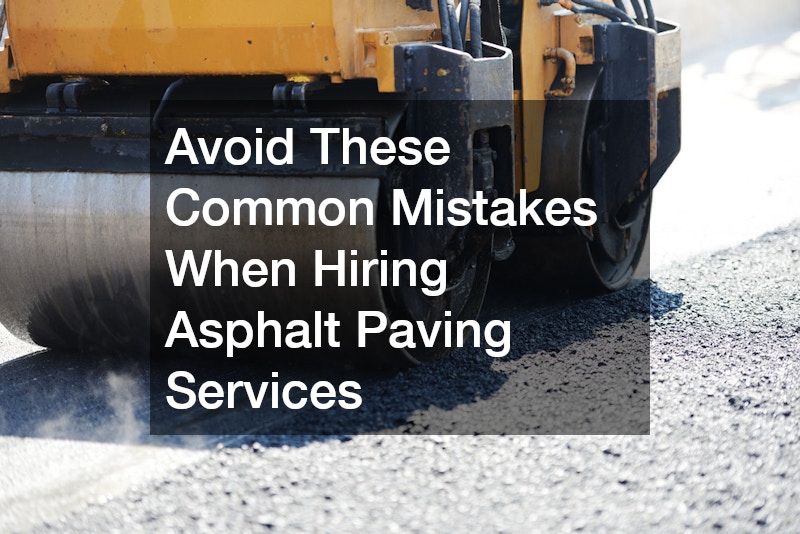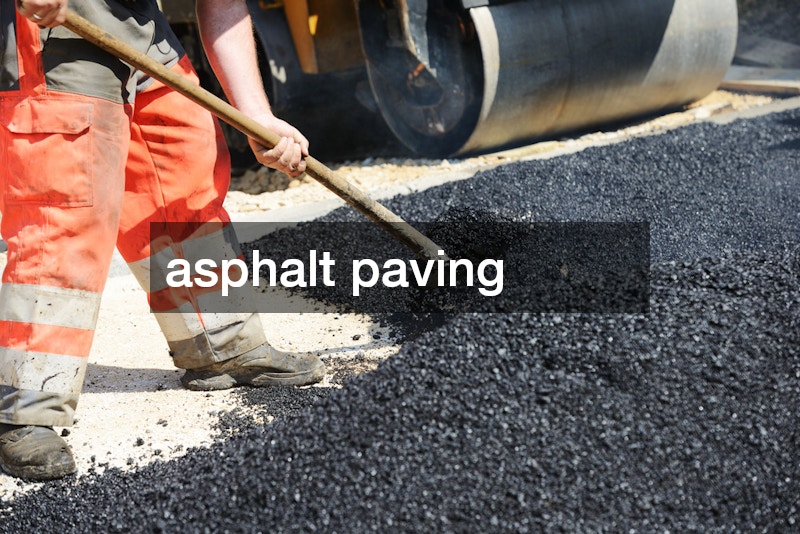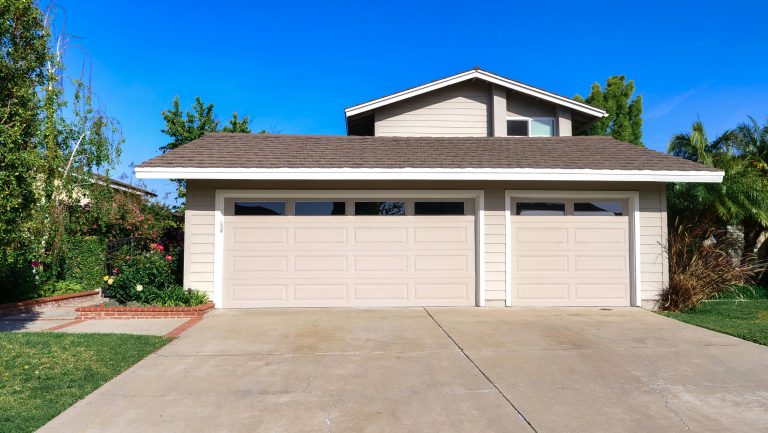

- Don’t hire based on the lowest price—cheap jobs often mean poor materials and workmanship.
- Always verify licenses, insurance, and local permits before signing anything.
- Check reviews, ask for references, and look at past projects to confirm quality.
- Get a written contract with clear scope, timeline, and payment terms.
- Ask detailed questions about materials, processes, and warranty coverage.
- Choose reliable local asphalt contractors who know your area’s soil, weather, and codes.

Hiring an asphalt paving contractor is a major decision for any homeowner looking to improve their driveway, walkway, or private road. Asphalt work can be a significant investment, and the longevity and quality of the result heavily depend on the contractor you choose. However, many homeowners make critical mistakes during the hiring process—mistakes that can lead to premature cracking, drainage issues, and wasted money.
This article will walk you through the most common errors to avoid and provide detailed guidance on how to find reliable local asphalt contractors for your next home improvement project.
Why Hiring the Right Asphalt Contractor Matters
The quality of your asphalt driveway or surface doesn’t just impact your property’s curb appeal—it affects safety, water drainage, and long-term maintenance costs. A properly installed asphalt driveway can last 15 to 30 years, but poor workmanship or inferior materials can drastically shorten that lifespan. That’s why it’s crucial to work with experienced, professional asphalt paving services in your area. Unfortunately, homeowners often fall into traps like choosing the cheapest contractor or skipping background checks.
To help you get the best value for your money and avoid costly headaches, let’s explore what not to do—and what steps you should take instead.
Mistake #1: Choosing the Lowest Bid Without Understanding the Scope
It’s natural to want a good deal, but choosing a contractor solely based on the lowest price is one of the most common mistakes homeowners make. Often, significantly cheaper quotes come at the cost of cutting corners, such as using lower-grade materials or skipping proper site preparation.
Why This Matters:
- Inadequate base preparation can lead to early cracking and potholes.
- Cheap materials may not hold up well against weather, especially in areas with heavy rain or temperature fluctuations.
- Lack of compaction can cause structural issues underneath the asphalt surface.
What You Should Do Instead:
- Request a detailed estimate that breaks down labor, materials, equipment usage, and site preparation.
- Compare quotes based on value, not just cost. Look at what’s included in each proposal.
- Ask about the type and thickness of the asphalt being used (e.g., residential driveways typically require at least 2-3 inches of compacted hot mix asphalt).
Mistake #2: Failing to Verify Licenses, Insurance, and Credentials
Homeowners often assume a contractor is licensed and insured, but this is not always the case. Hiring an unlicensed contractor can expose you to significant liability, especially if an accident occurs on your property.
Risks of Unverified Contractors:
- You could be responsible for medical bills if a worker is injured on your site.
- Your homeowners’ insurance may not cover damages caused by unlicensed work.
- You might have limited legal recourse if the work is substandard.
How to Protect Yourself:
- Request proof of licensing and insurance. These should be current and cover both liability and workers’ compensation.
- Check with your local licensing board or municipal office to confirm the contractor is registered and in good standing.
- Ask if permits are required for the job and whether the contractor will handle the application process.
Mistake #3: Not Researching the Contractor’s Reputation and Experience
A contractor’s online presence and past customer feedback can tell you a lot about their experience, reliability, and professionalism. Many homeowners overlook this step and end up with contractors who deliver poor service or disappear halfway through the job.
Warning Signs of Unreliable Asphalt Paving Companies:
- No website or professional contact information.
- Negative or missing reviews on reputable platforms like Google or local directories.
- Refusal to provide references or a portfolio of past work.
What You Should Do:
- Check online reviews and ratings. Look for consistent positive feedback over several years.
- Ask for local references. Call previous clients and ask about their satisfaction, project duration, and overall experience.
- Request photos or visit completed job sites. This helps you assess the quality of their craftsmanship firsthand.
Mistake #4: Skipping the Written Contract
Some homeowners proceed with verbal agreements, assuming a handshake is enough. This can lead to serious disputes over pricing, scheduling, and the scope of work.
Problems That Can Arise:
- Unexpected charges or “extras” added after the work begins.
- Disagreements over project completion timelines.
- Incomplete work with no accountability.
What a Good Contract Should Include:
- Detailed job description (base prep, grading, asphalt thickness, etc.).
- Project start and end dates.
- Itemized cost breakdown.
- Warranty terms.
- Payment schedule and method.
Always ensure both parties sign the contract before work begins. Keep a copy for your records.
Mistake #5: Not Asking the Right Questions
Many homeowners don’t know what to ask and end up assuming the contractor will take care of everything. Asking informed questions can help you spot unreliable or underqualified contractors.
Important Questions to Ask:
- How many years have you been paving in this area?
- What type of asphalt mix will you use, and why?
- Do you subcontract any part of the job?
- What is your process for preparing the base and handling drainage?
- How do you ensure the asphalt is compacted properly?
- Will you apply a seal coat, and if so, when?
Reliable local asphalt contractors will answer these confidently and clearly. If a contractor hesitates or gives vague answers, that’s a red flag.
Mistake #6: Ignoring the Value of Local Expertise
Hiring local contractors has several advantages that many homeowners overlook. National or out-of-town contractors may not understand your region’s specific soil conditions, climate patterns, or permitting requirements.
Why Local Asphalt Contractors Are Often the Better Choice:
- They are familiar with local weather patterns that affect paving schedules.
- They understand soil composition and grading needs in your area.
- They are more likely to follow local regulations and obtain necessary permits.
- They rely on word-of-mouth and community reputation, so they have more incentive to perform high-quality work.
How to Find Reliable Local Asphalt Contractors:
- Search through local directories, municipal contractor lists, or neighborhood forums.
- Ask friends, family, and neighbors for recommendations.
- Visit ongoing or recently completed paving projects nearby.
- Ensure the company has a physical address in your area, not just a P.O. box or out-of-state number.
Mistake #7: Paying Too Much Upfront
While some down payment is normal, especially for scheduling and material procurement, homeowners should be cautious of contractors asking for a large portion of the total cost before any work is completed.
Safe Payment Practices:
- Limit initial deposits to no more than 10–20% of the total project cost.
- Use a staged payment schedule based on project milestones (e.g., base prep, asphalt laying, final cleanup).
- Avoid cash-only deals—use checks or digital payments for tracking purposes.
- Don’t make the final payment until the job is fully completed and you’ve inspected the work.
Mistake #8: Overlooking Warranty and Maintenance Terms
Not all asphalt work is guaranteed. If something goes wrong, having a written warranty in place protects your investment.
What to Look For in a Warranty:
- Minimum of 1-year coverage (longer is better) on workmanship and materials.
- Coverage details for cracks, potholes, or structural failure.
- Maintenance recommendations (sealcoating, drainage upkeep) are required to keep the warranty valid.
Also, ask whether the contractor provides after-service support and seasonal maintenance programs.
Mistake #9: Failing to Plan Around Weather Conditions

Asphalt is highly sensitive to weather conditions during installation. Temperature, humidity, and precipitation can all impact the quality of the final product.
Planning Tips:
- Ideal paving temperatures are generally above 50°F (10°C) and dry.
- Avoid scheduling during the rainy season or extreme heat waves.
- Ask the contractor how they handle weather-related delays.
- Verify that they have equipment like rollers and compactors that are suitable for the temperature range during installation.
Experienced local asphalt paving contractors will know how to adjust their approach based on seasonal factors in your area.
Conclusion: Make the Right Choice for a Long-Lasting Driveway
Asphalt paving may seem straightforward, but hiring the wrong contractor can lead to costly problems down the road. Whether you’re planning a new driveway or resurfacing an old one, taking time to evaluate your options carefully can make all the difference. From verifying credentials to asking the right questions, each step you take toward finding reliable local asphalt contractors increases your chances of a smooth, durable result.
Remember: professionalism, transparency, and local experience should outweigh a too-good-to-be-true quote. A well-done asphalt project not only enhances curb appeal but also boosts the value and function of your property for years to come.
Next Steps:
- Begin researching asphalt paving services in your area today.
- Contact at least three local contractors for quotes and references.
- Ask for detailed proposals and review them side-by-side before signing anything.
By avoiding the common mistakes outlined above and prioritizing quality over shortcuts, you’ll make a smarter, safer investment in your home.







